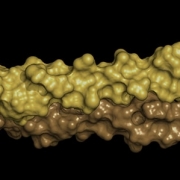Newborn screening: the pros and cons of genome sequencing
Could genome sequencing replace the blood spot test? We review the potential benefits and drawbacks of a more direct approach to screening
Newborn screening is a long-established practice, used to check for a range of potential health problems shortly after a baby is born. All of these conditions are genetic in origin, but genome sequencing is currently considered most effective as a follow-up test rather than as the first course of action.
So, what does the first-line test offer, and is it still the most effective approach for screening given ongoing advancements in genomics?
The blood spot test
At five days old, newborn babies in the UK normally have a few drops of blood taken from their heel, to be tested for a number of rare but serious metabolic conditions. This is known as the blood spot test.
The blood is not used for genetic testing. Instead, it is used to detect unusual levels of certain chemicals in the blood, which can act as early indicators of certain diseases. For example, high levels of the amino acid phenylalanine would indicate that the baby may have phenylketonuria, and would need to start a special diet to avoid irreversible brain damage. Further testing would then take place, including the introduction of genomic tests, to confirm the diagnosis.
Phenylketonuria is one of nine conditions screened for in this way in England, Wales and Scotland, and one of five in Northern Ireland. The process is similar in many developed countries, but the number of conditions being tested for varies.
As all of the diseases that the blood spot test screens for are genetic in origin, and since the test is not considered diagnostic – with positive results requiring further testing to confirm, would it make more sense to do a genomic screen in the first place?
Limitations of genomic screening
This blog reported last year on calls to expand newborn screening and perform genome sequencing at birth.
A recent study from the University of California compared whole exome sequencing and the current standard methodology for metabolic tests (tandem mass spectrometry or MS/MS – the same as is used in the UK) for identifying 48 metabolic conditions.
The results for exome sequencing had more false negatives than MS/MS (around 12%, compared to 1%), and more false positives (1.6%, compared to 0.2%), indicating that exome sequencing is not currently a valid replacement for the existing protocol.
Part of the reason for these results may be that California has a diverse population which is not fully represented by the reference genome, and the reference genome may therefore be missing important disease-associated variants. This would also apply in the UK, and may cause inaccurate results for families, particularly those from ethnic minority backgrounds.
Study author and UC Berkeley researcher Dr Aashish Adhikari advocates a cautious approach to genome sequencing, arguing that “[there] are well-studied single-gene conditions, but that does not mean we have found all the genes associated with them… additional genes could be involved, as well as additional biological and environmental factors that may limit our ability to predict disease from DNA sequences alone.”
What could genomics offer?
The researchers stress that exome sequencing can still be extremely useful in young children, both to back up the metabolic test and to identify some conditions that do not have a metabolic footprint.
“If the current mass spectrometry testing comes out unclear, sequencing could reveal a gene variant that solves the mystery,” said UC San Francisco professor, Dr Steven Brenner. “Sequencing to screen additional carefully vetted disorders could enable timely treatment of some children with conditions that presently go unrecognised until it’s too late for optimal intervention.”
Although exome sequencing does not always provide certainty, in some cases, it can have a positive impact on the lives of those affected by rare conditions, and their families. As part of its ‘Clinical Genetics in Action’ series, the GEP previously spoke to Beskida Fejzullahu, whose son experienced a life-changing diagnosis through this type of test.
For more information on genetic conditions, including the nine currently screened for by the Newborn Blood Spot Screening Programme, view our library of factsheets designed for primary care health professionals and clinicians.
–









